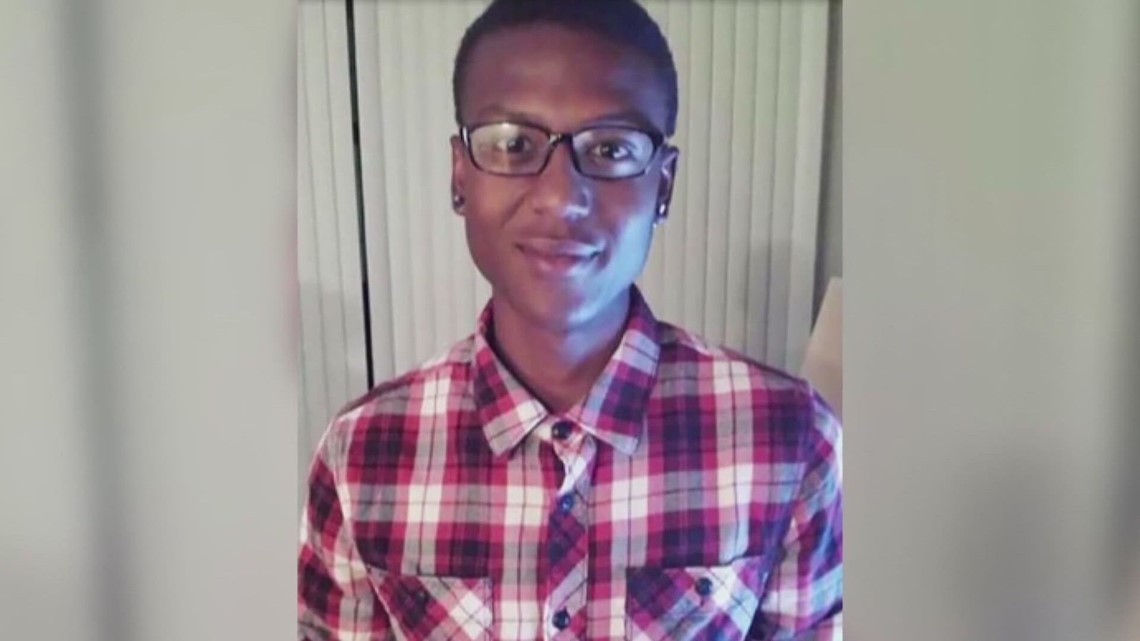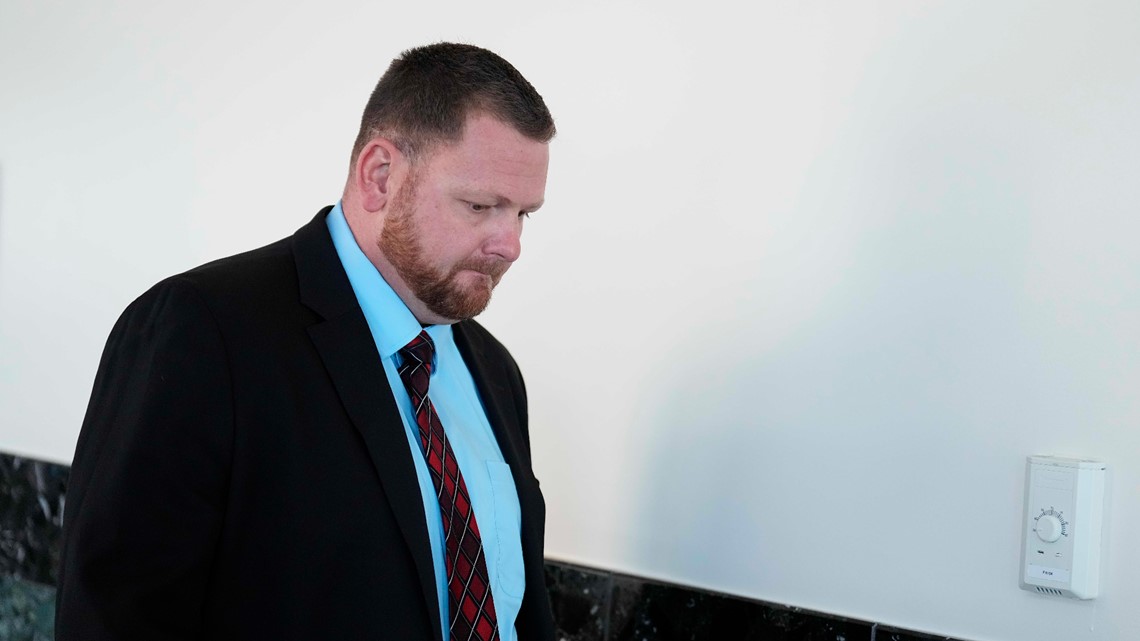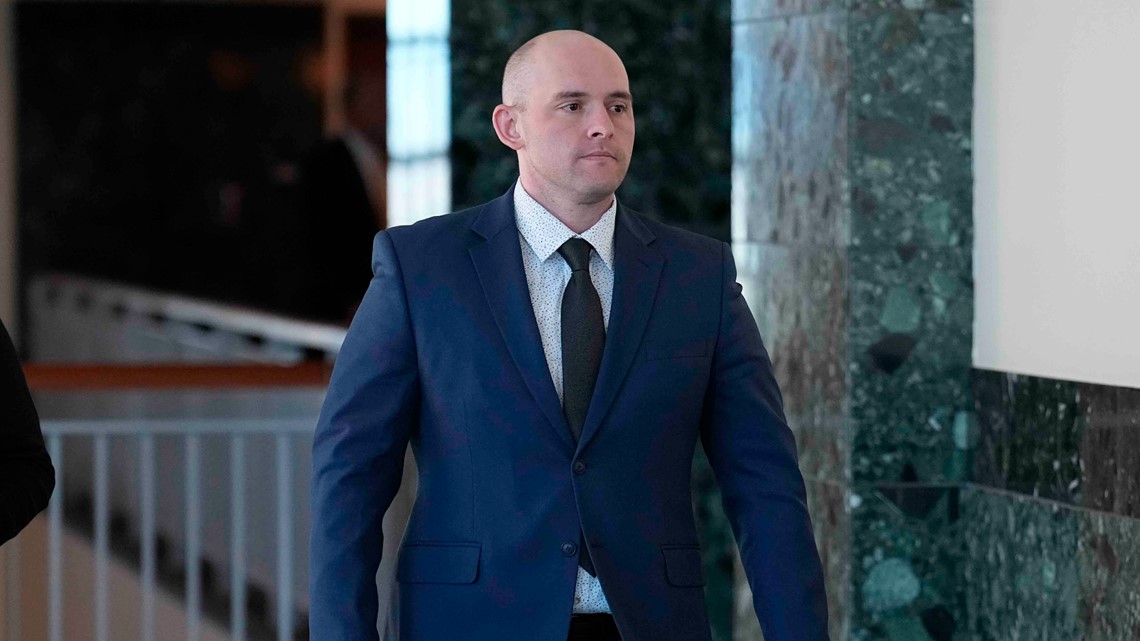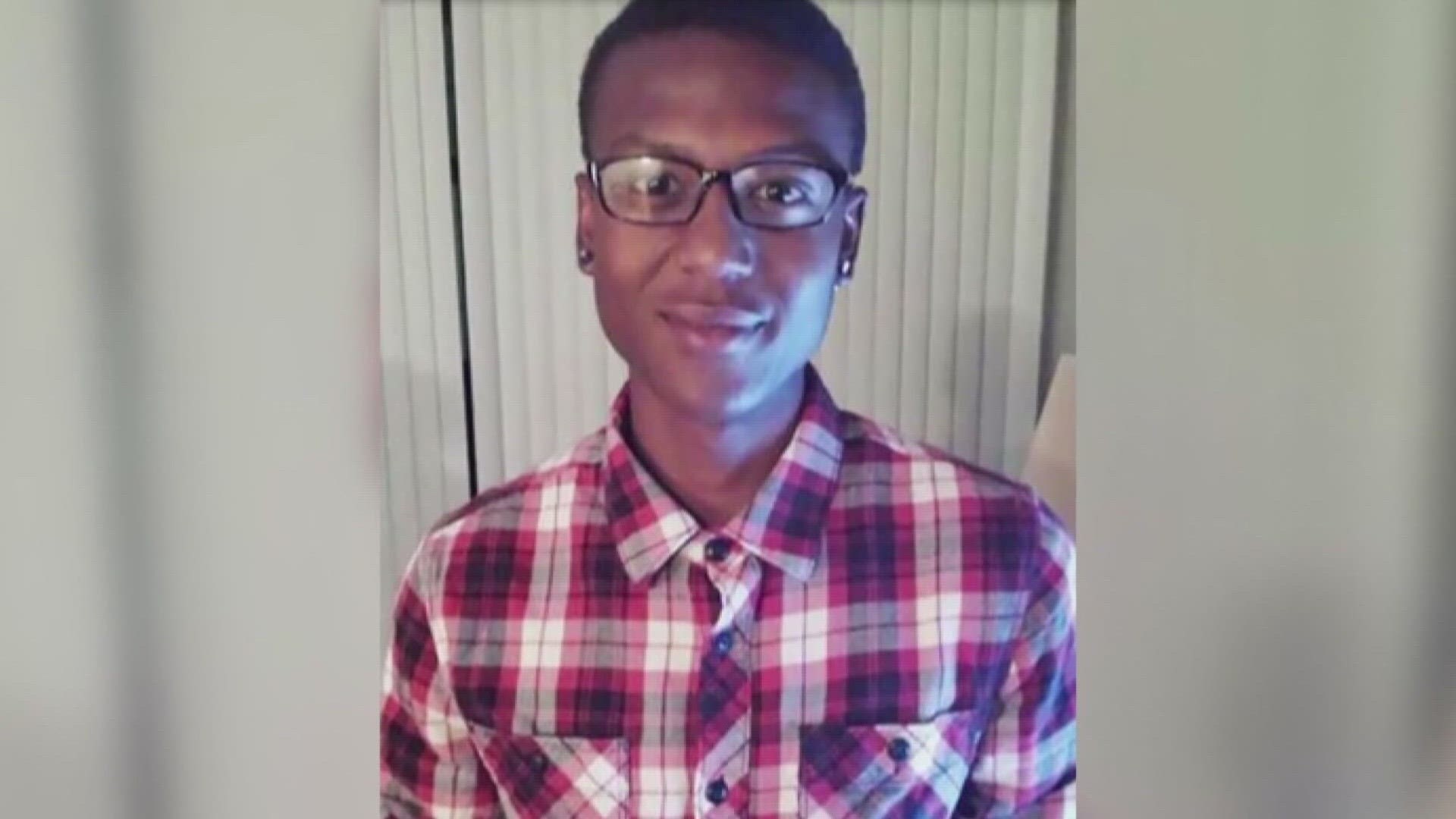AURORA, Colo. — A former Aurora Police Department division chief testified Wednesday about the policies of the department as prosecutors sought to prove that officers lacked the authority to detain Elijah McClain, who had done nothing wrong, in the first place.
"Based upon the policy, my interpretation, just because someone was called in as suspicious doesn't automatically mean there is responsible suspicion to stop the person," said Captain Stephen Redfearn.
"The officer in every occasion has to articulate what he or she is seeing hearing, smelling, all of those things to articulate reasonable suspicion and it doesn't matter what the call is. That’s something they have to do to then proceed with the contact."
Redfearn, who now works for the Boulder Police Department, spent hours on the witness stand Wednesday talking about numerous Aurora Police Department policies in the trial for suspended Aurora officer Randy Roedema, 41, and former officer Jason Rosenblatt, 34.
They are among five people indicted in 2021 in connection with McClain's death. Both are charged with reckless manslaughter and second-degree assault.
A third officer and two paramedics were also indicted and will go to trial later this year.
Defense attorneys for both officers argued that the issue of stopping McClain is irrelevant to the case because it was the other officer, Nathan Woodyard, who first contacted McClain. They argued that the only issue is the use of force and whether it was appropriate or not.
Officers initially made contact with McClain, 23, on Aug. 23, 2019, after a 911 caller reported a suspicious person wearing a coat and mask over his face.
Shortly after the first officer contacted McClain he was taken to the ground and handcuffed. During that takedown, a carotid hold was used, which at the time was allowed under the department's policy.


Redfearn, who was the night shift duty captain on the night of the incident, responded to the scene but arrived as the ambulance with McClain inside was pulling away. Prosecutors asked him to explain the carotid hold maneuver to jurors.
He said it's used to subdue someone who's "actively resisting" and explained that as part of the move the arm is placed around the neck in a way to restrict oxygen to the brain, which causes the person to lose consciousness.
Officers can use those brief moments of unconsciousness, he said, to get the person handcuffed.
Later that same evening, after the carotid hold was used, paramedics injected McClain with ketamine, a sedative. His heart stopped and he died several days later.
Redfearn said before McClain died, he made the decision that the incident should be investigated as a "critical incident," something which is automatically triggered when there is a deadly shooting involving officers but can be called for in other serious situations.
That meant there was a criminal investigation and an internal investigation. Previously, then-District Attorney Dave Young declined to file charges against anyone involved.
On the witness stand Wednesday, Redfearn was questioned about various other department policies including those related to stopping pedestrians, de-escalation and use of force policies.
He was asked whether a person who was stopped by police was required to answer questions and could be detained in order to get those questions answered.
"If an encounter is merely consensual there is no other legal basis for detention at that point, if someone says they want to leave, the training is that they're free to do that," said Redfearn. "If it's only consensual."
The de-escalation policy requires officers to use de-escalation tactics when "practical" and Redfearn was asked to describe a time when it could not be used.
"When you arrive somewhere and someone is being harmed, someone is actively doing something, shooting, there is no expectation we’re going to de-escalate," he said. "It's up to the individual officer to evaluate based on all of the factors. They have to evaluate, sometimes very quickly, the entire situation and then figure out, is it reasonable at this point for me to de-escalate?"
The defense said previously that McClain tried to grab Rosenblatt's gun during the encounter, something Don Sisson, Roedema's attorney alluded to during his cross-examination.


“What about when a suspect goes for a gun? he asked Redfearn.
“You may try to say, 'Hey don’t do that,'" replied Redfearn. "But at the same time, I’m doing to be trying to prevent that or pulling my own firearm.”
Redfearn also testified that based on his experience as an officer in Aurora he considered the area of Billings and Colfax, where McClain was contacted to be a high-crime area. When asked, however, if an officer would be required to contact someone who was reported as suspicious.
"If officers are dispatched to a suspicious persons call, they are required to make contact, is that right?" Sisson asked.
"Mostly right, there are times when a call could come in and officers evaluated a situation and decide not to contact, that does happen," Redfearn replied.


Wednesday's testimony did not begin until after noon because the defense raised concerns that they received reports from prosecutors after witnesses had testified. One of the reports was related to a witness who was set to testify Wednesday. Defense attorneys said they would not be prepared for cross-examination of that witness until they had time to review the report.
Jason Slothauber with the Attorney General's Office admitted the reports were sent late but said he was under the impression they had been supplied to the defense on Monday. He told the judge he would take steps to make sure reports are supplied in a timely fashion.
Harvey Steinberg, who represents Rosenblatt, asked the judge to declare a mistrial saying the failure to turn over the three reports amounted to a pattern by prosecutors.
"If they did it three times so far, how many times are we missing?' Steinberg said "That’s the concern. The court needs to grant the mistrial."
Judge Mark Warner denied a mistrial but ordered prosecutors to turn over any new reports within 12 hours of their completion and at least four hours before a witness testifies.
Jeremy Cooper and Peter Cichuniec, the two paramedics who responded to the call, are set for trial in November. They are each charged with reckless manslaughter and numerous counts of assault.
Another officer, Nathan Woodyard, who was the first to respond to the call about McClain, was also indicted on a charge of reckless manslaughter. His trial is set to begin in mid-October.
SUGGESTED VIDEOS: Elijah McClain death

